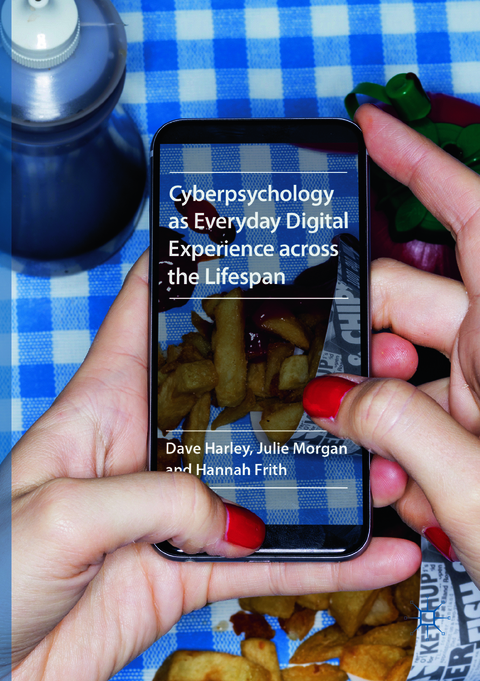
Cyberpsychology as Everyday Digital Experience across the Lifespan
Palgrave Macmillan (Verlag)
978-1-349-95917-4 (ISBN)
Most psychological research has focused on whether human-technology interactions are a ‘good’ or a ‘bad’ thing for humanity. This book offers a distinctive approach to the emergent area of Cyberpsychology, moving beyond these binary dilemmas and considering how popular technologies have come to frame human experience and relationships. In particular the authors explore the role of significant life stages in defining the evolving purpose of digital technologies. They discuss how people’s symbiotic relationship with digital technologies has started to redefine our childhoods, how we experience ourselves, how we make friends, our experience of being alone, how we have sex and form romantic relationships, our capacity for being antisocial as well as the experience of growing older and dying. This interdisciplinary book will be of great interest to scholars and practitioners across psychology, digital technology and media studies as well as anyone interested in how technology influences our behaviour.
Dave Harley is a Senior Lecturer at the University of Brighton, UK. His broad research areas cover Cyberpsychology and Human Computer Interaction with a particular interest in older people’s use of digital technologies. In 2016 he completed a Culture and Communities Network+ research project looking at older people’s experiences of online community. Julie Morgan is a Senior Lecturer at the University of Brighton, UK. Her research focuses on autobiographical memory, social anxiety and the development of social fears. She has also published research exploring the social dimension of nature-connectedness within mental health recovery. Hannah Frith is Principal Lecturer at the University of Brighton, UK. Her research centres on sexuality, embodiment and subjectivity including constructions of sexual consent/non-consent, orgasm and sexual pleasure, and the meaning of sexual practices. She previously authored Orgasmic Bodies published by Palgrave in 2015.
Chapter 1: Understanding Digital Technology as Everyday Experience.- Chapter 2: Growing Up Online.- Chapter 3: Being yourself.- Chapter 4: Having a social life.- Chapter 5: Being ‘Sexy’.- Chapter 6: Behaving badly.- Chapter 7: Being alone.- Chapter 8: Growing Older.- Chapter 9: Dying.- Chapter 10: Reflections on a Digital Life.
| Erscheinungsdatum | 25.06.2019 |
|---|---|
| Zusatzinfo | XIV, 251 p. |
| Verlagsort | Basingstoke |
| Sprache | englisch |
| Maße | 148 x 210 mm |
| Themenwelt | Geisteswissenschaften ► Psychologie ► Psychoanalyse / Tiefenpsychologie |
| Geisteswissenschaften ► Psychologie ► Sozialpsychologie | |
| Informatik ► Software Entwicklung ► User Interfaces (HCI) | |
| Sozialwissenschaften ► Kommunikation / Medien ► Medienwissenschaft | |
| Schlagworte | Cyberbullying • Cyberpsychology • Digital exclusion • digital immersion • Digital Technology studies • Human Computer Interaction (HCI) • Hyperpersonal theory • Media Effects Research • Media Studies • older people and the internet • Online Disinhibition Effect theory • Online Identity • Problematic Internet Use (PIU) • psychology of gaming • Rational Choice Theory (RCT) |
| ISBN-10 | 1-349-95917-0 / 1349959170 |
| ISBN-13 | 978-1-349-95917-4 / 9781349959174 |
| Zustand | Neuware |
| Informationen gemäß Produktsicherheitsverordnung (GPSR) | |
| Haben Sie eine Frage zum Produkt? |
aus dem Bereich


